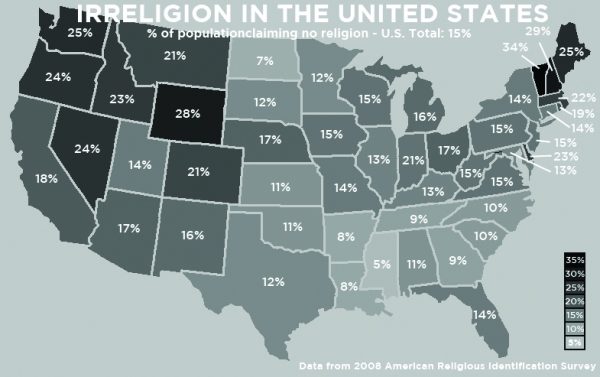noun ir·re·li·gion \ˌir-i-ˈli-jən\
From French irréligion, from Latin irreligionem.
(adjective form: non-religious or irreligious) is the absence, indifference, rejection of, or hostility towards religion.[1]
When characterized as the rejection of religious belief, it encompasses atheism, agnosticism, deism, religious dissidence, and secular humanism. When characterized as the absence of religious belief, it may also include “spiritual but not religious”, pandeism, ignosticism, nontheism, pantheism, panentheism, and freethought. When characterized as indifference to religion, it is known as apatheism. When characterized as hostility towards religion, it encompasses antitheism, antireligion and misotheism.
Irreligion may include some forms of theism, depending on the religious context it is defined against; for example, in 18th-century Europe, the epitome of irreligion was deism.[2] According to Pew Research Center projections, the nonreligious, though temporarily increasing, will ultimately decline significantly by 2050 because of lower reproductive rates and ageing.[3]




